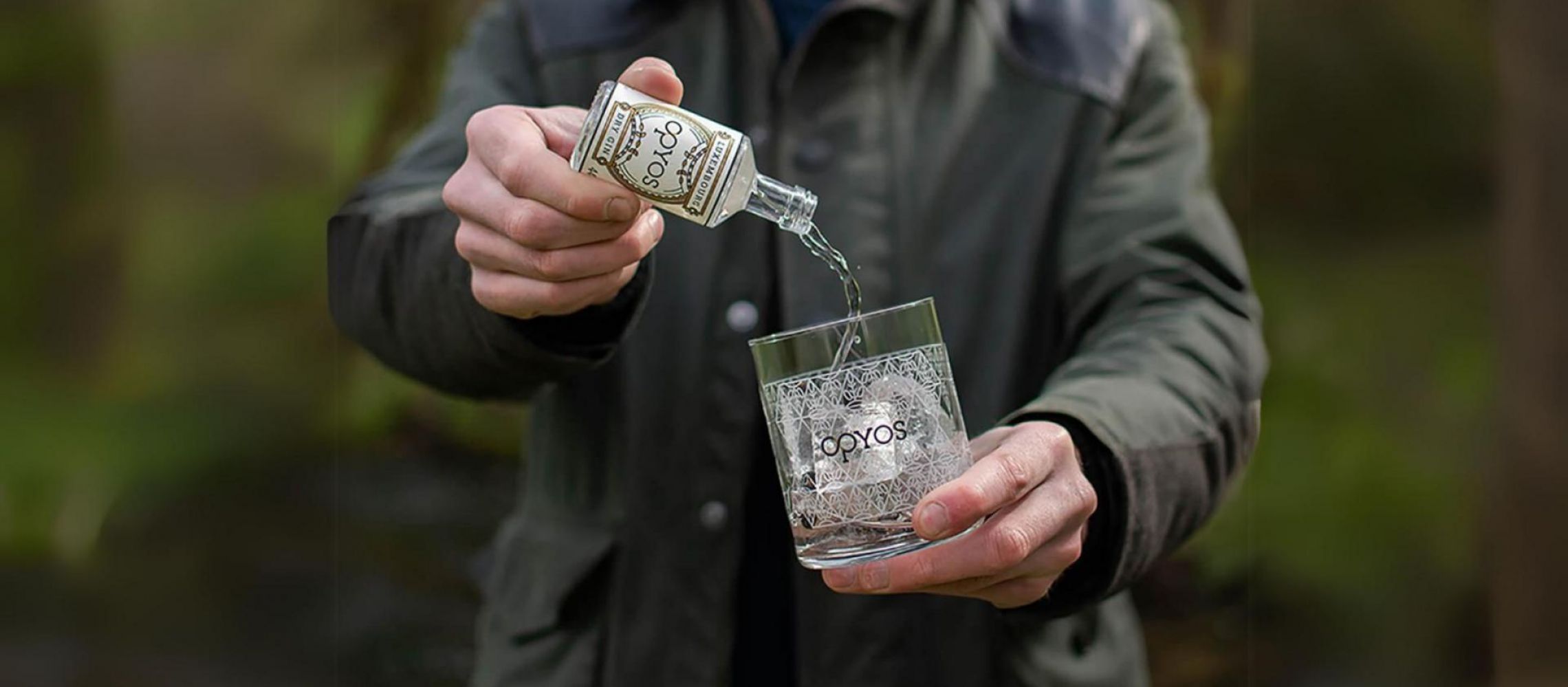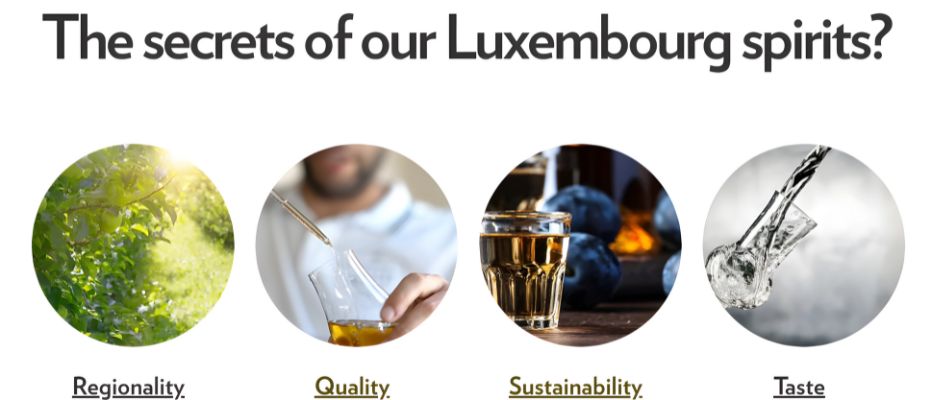Submission Deadline
28 February 2026
Judging
Date
24 & 25 March 2026
Winners Announcement
22 April 2026
28 February 2026
24 & 25 March 2026
22 April 2026

Luxembourg, a small European country known for its picturesque landscapes and rich cultural heritage, is making a name for itself in the global spirits market. With a history dating back centuries, Luxembourg's spirits industry is a blend of tradition and innovation, offering a unique range of products that appeal to both local and international consumers. Spirits, both domestically produced and imported, are an increasingly important sector.
Statista reports that the revenue in Luxembourg's spirits market is projected to reach US$5.82 million in 2024, with an annual growth rate (CAGR) of 8.62% from 2024 to 2029, reaching US$8.80 million by 2029. The number of users is expected to amount to 53.2 thousand by 2029, with user penetration increasing from 6.5% in 2024 to 8.0% by 2029. The average revenue per user (ARPU) is projected to be US$145.10. EuroNews reports that the EU nations with the largest shares of their populations drinking alcohol on a weekly basis are the Netherlands (47.3 percent), Luxembourg (43.1 percent), and Belgium (40.8 percent).
Luxembourg's spirits industry is deeply rooted in its history and cultural heritage related to beer and wine. The country's long tradition of winemaking dates back to Roman times, and today, Luxembourg is home to a number of renowned wineries producing high-quality wines from local grape varieties such as Riesling, Pinot Blanc, and Pinot Gris. Additionally, Luxembourg boasts a strong tradition of brewing, with historic breweries like Bofferding dating back to the 18th century.
While traditional products like wine and beer remain central to Luxembourg's spirits industry, there has been a notable shift towards innovation and adaptation in recent years. The emergence of craft distilleries producing artisanal spirits has added diversity to the market, with products ranging from small-batch gins to unique liqueurs and brandies. A new spirits marketing organization, Spirits of Luxembourg, also exists.

Source: Spirits of Luxembourg
Consumer trends in Luxembourg reflect broader global patterns, with a growing interest in premium and artisanal spirits. The trend towards premiumization is evident, with consumers willing to invest in high-quality products that offer a unique taste experience. Additionally, there is a growing demand for locally produced and environmentally friendly spirits, reflecting a broader shift towards sustainability and ethical consumption.
The trend towards premiumization is evident, with consumers investing in unique products. Limited-edition spirits, priced at €300+, are sought after by speculative buyers. However, high-end spirits have become less accessible, leading some consumers to switch to rum due to rising whisky prices. Opyos Beverages makes small-batch spirits, inspired by the local heritage of the Grand Duchy of Luxembourg. Opyos’ product's unique taste profile is rooted in the subtly struck balance between native botanicals and ingredients typical to the spirit. The result is an exclusive product line with powerful flavors of local terroir.
Local, organic, and environmentally friendly spirits are indeed gaining traction, particularly among consumers in Luxembourg. Vincent Naccari from Carrefour noted a trend towards local products, although they still represent a small share of sales. Another expert buyer expressed skepticism about the quality of some local spirits and emphasized the need for critical selection.
The pandemic led to record sales for multiple retailers and direct sales stores, as consumers shifted to drinking at home due to travel restrictions and restaurant closures. Conversely, stockists specializing in the on-trade experienced significant declines in sales during lockdown.
Overall, the spirits market in Belgium and Luxembourg reflects a dynamic landscape, with rum challenging whisky's dominance, premiumization driving consumer choices, and an increasing interest in local and environmentally friendly options.
Luxembourg's spirits industry has also seen significant expansion beyond its borders, particularly in the United States. Importers like Ansay International have played a key role in introducing Luxembourgish spirits to American consumers. The American market for Luxembourgish alcohol is driven by passionate consumers, with a significant Luxembourgish population in the US. The company's success has led to a broader appeal beyond the Luxembourgish community, attributed to the quality and heritage of the products. Ansay International's imports are exclusively from small, family-run Luxembourgish companies.
Despite its growth, the Luxembourgish spirits industry faces a number of challenges. Competition from larger producers, both domestic and international, remains fierce, and navigating the complex regulatory environment can be daunting for small producers. However, there are also significant opportunities for growth, particularly in export markets where Luxembourgish spirits are gaining recognition for their quality and craftsmanship.

Image: London Spirits Competition 2024
International spirits competitions can have a significant impact on the Luxembourg spirits industry, both in terms of import and export orientation. Here are several ways in which these competitions can aid and impact the industry:
- Increased Recognition and Prestige: Winning awards at international spirits competitions can significantly enhance the reputation and prestige of Luxembourgish spirits both domestically and abroad. This recognition can help attract more attention from consumers, retailers, and distributors, ultimately leading to increased sales and market share.
- Market Expansion: Awards from international competitions can open up new markets for Luxembourgish spirits. Winning products are often featured in media coverage and promotional materials, helping to raise awareness and generate interest among consumers in different countries.
- Export Opportunities: For export-oriented producers, winning awards can be a powerful marketing tool to differentiate their products in competitive international markets. It can also help them gain access to new distribution channels and retail outlets, facilitating export growth.
- Quality Assurance: International spirits competitions often have rigorous judging processes, which can serve as a form of quality assurance for consumers. Winning awards can reassure consumers about the quality and craftsmanship of Luxembourgish spirits, helping to build trust and loyalty.
- Industry Recognition: Winning awards can also boost the morale and motivation of producers in the Luxembourg spirits industry. It can validate their hard work and dedication, providing them with a sense of recognition and accomplishment within the industry.
- Tourism and Hospitality: International awards can also have a positive impact on Luxembourg's tourism and hospitality sectors. Award-winning spirits can become a point of pride for the country, attracting tourists who are interested in exploring the local culture and tasting the award-winning products.
In all, international spirits competitions can be a valuable tool for the Luxembourg spirits industry, aiding in market expansion, increasing recognition and prestige, and enhancing the overall quality and reputation of Luxembourgish spirits both domestically and internationally.
The future of Luxembourg's spirits industry looks bright, with continued innovation and a focus on quality driving growth. As consumer preferences evolve, the industry is likely to see further diversification and expansion, offering a wide range of unique and exciting products for spirits enthusiasts around the world to enjoy.
Header Image Source: Opyos
Show your spirits where it matters. Get your products tasted by top bartenders, buyers and experts at the London Competitions — enter now.